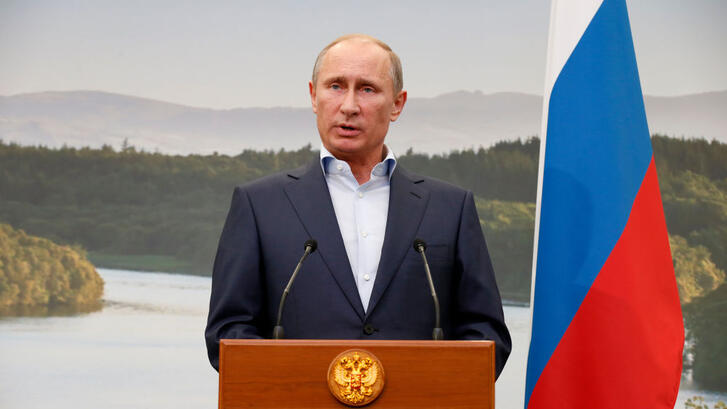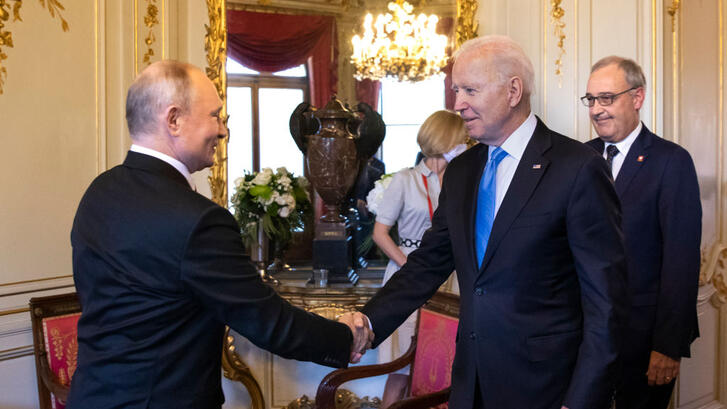Alexander Vindman Speaks to the Importance of Upholding Democracy at Home and Abroad
Alexander Vindman Speaks to the Importance of Upholding Democracy at Home and Abroad
On the World Class Podcast, Lieutenant Colonel Alexander Vindman (Ret.) makes the case for why integrity and values are foundational to the success of democracies everywhere.

October 28, 2019 was a day much like any other for Lieutenant Colonel Alexander Vindman (Ret.) and his family. He reviewed some notes, picked up the dry-cleaning and took his daughter to a Girl Scout Halloween party. Less than 24 hours later, Vindman was the international headline no one could stop talking about.
On October 29, Vindman offered a public testimony on a private wrongdoing that had been brewing since the spring and summer. In no uncertain terms he laid out to the United States Congress that on a phone call Vindman was privy to, President Donald Trump had attempted a quid pro quo with President Zelensky of Ukraine: withholding already approved military aid funds unless the Ukrainian leadership helped Trump’s private legal team find incriminating information about Hunter Biden, the son of Trump’s political opponent, Joe Biden.
The impacts of Vindman’s decision to report that phone conversation has had on the course of history and the course of Vindman’s personal and professional life are still being felt. On World Class, he joins FSI Director Michael McFaul to discuss his book, Here, Right Matters, which details the experiences and personal convictions that grounded his decision to report the call, and to share his perspectives on why supporting democracy at home and abroad is more important now than ever.
Listen to the full episode below, or browse highlights below.
Click the link for a transcript of "Why Right Matters to Democracy Here and Abroad."
Upholding Democracy At Home
It's really kind of quizzical how an immigrant refugee kid from Kyiv ends up in the White House working on Russia and Ukraine policy. And that’s what my book is really about; it talks about some of the key moments from my background and my family's background that I drew on in making those fateful decisions that I did on January 25, and how they carried me through my congressional testimony.
I made that report without any hesitation, because I thought there was an opportunity to right the course of events. I didn't really think that these things were going to enter the public view. I just did what I thought was right, and then when I was called to testify about making these reports, I followed through. Even there, it was not a hard decision about what the right thing to do was. I was not going to put my interests ahead of U.S. interests.
Supporting Democracy Abroad
When we see everything that’s happening in the world right now, I can understand why people look at someplace like Ukraine and think, “Why should we care about what happens there?”
But Ukraine makes a really compelling normative case for where Russia could end up, which I think everyone would agree is important. I think about the example of West Germany making East Germany unviable in the Cold War. Both countries started at the same place: decimated. But West Germany, being democratic and prosperous and enjoying basic human rights, thriving economy, made East Germany unviable and demonstrated Germany as a failure.
In much the same way, Ukraine could do the same thing for Russia. As we both know, Putin believes that Ukraine and Russia are the same people separated by an artificial boundary; the share roots and have a shared identity. Now, that's a vast oversimplification. That's not entirely true. But that's what he believes. And that's what he's convinced this population of. So, how would he explain 20 years from now, or in 2036, when he's done with his latest term in office, and there's somebody else that's looking to step in: How can another authoritarian leader step in and say, “We’re going to continue the course with managed democracy,” when Ukraine is prosperous?
It makes a really compelling case for a path that Russia could take on a path that would take it towards democracy. That would be a difficult road, but it's a viable path, because Ukraine is the example. And that's important not just because of our strategic aspirations for Russia, but also because it has an impact on China also. You've heard me talk about this notion that all of Russia's national security threats are from a belligerent rising, coercive China; they're not from the West.
The West is held out as a boogeyman at the moment, because it's useful to the regime. It's important to the regime to fight against the West as the aggressor and to couch the West as a failure and decadent for regime stability purposes. But from a national security perspective, I think any reasonable assessment would indicate that those threats are really not emanating from the West, but from the East. So supporting Ukraine also empowers our competition with China. That's why I think that the Biden administration should be unconstrained in its support of Ukraine.
More from Alexander Vindman
Watch the book talk FSI hosted with Lieutenant Colonel Alexander Vindman (Ret.) for Here, Right Matters.



